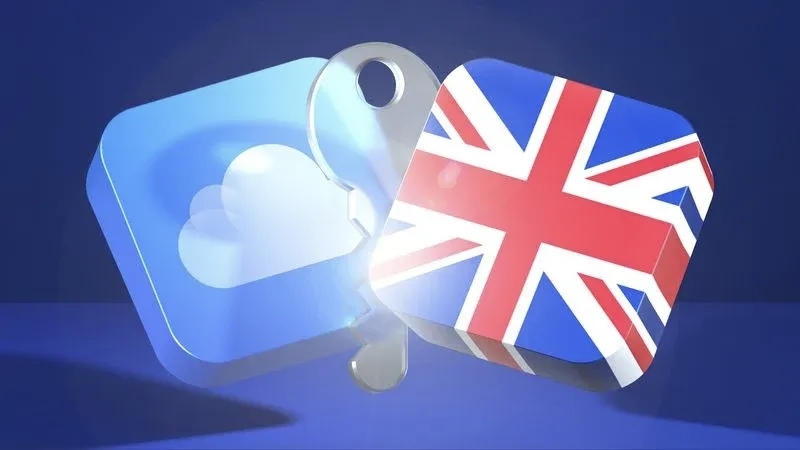
On August 27 local time, new court documents released by the UK's Inquirers' Court (IPT) once again brought the dispute between the British government and Apple over data "backdoors" into the public eye. This incident not only concerns the privacy and security of Apple users, but also reflects the complex and delicate relationship between government power and technology enterprises, as well as between privacy protection and data security.
At the beginning of this year, informed sources disclosed that officials from the British security department asked Apple to create a "backdoor" in order to retrieve the content uploaded to the cloud by global Apple users. In February, Apple publicly admitted to having received a "Technical Capability Notice" (TCN) from the UK Home Office. Under this request, Apple removed the "Advanced Data Protection" (ADP) feature for iCloud data and no longer made it available to UK customers. The documents released by IPT this time show that the UK government's requirements are more extensive than expected. They not only involve cracking the "Advanced Data protection" function but also attempt to access messages and passwords in cloud backups and other contents. Moreover, this requirement applies to all iCloud users worldwide.
From the perspective of the British government, they believe that breaking through the encryption barriers of information and backup systems is crucial for protecting the public from the threat of terrorism and investigating child sexual abuse. In today's complex security situation, it is not uncommon for extremist organizations to use encrypted communications to plan terrorist activities, and for criminals to hide evidence related to child sexual abuse through encryption technology. This poses obstacles for the government in combating crime and safeguarding national security. The UK's Powers of Investigation Act grants the government the authority to force businesses to enable access to encrypted data, with the original intention of providing more powerful tools for law enforcement and security departments.
However, this approach has sparked a lot of controversy. For Apple Inc., protecting user privacy and data security has always been its core value proposition. In 2022, Apple launched the "Advanced Data Protection" feature of iCloud, ensuring that the data in iCloud is protected by end-to-end encryption technology. Only the user themselves can unlock the data, and Apple itself does not hold the encryption key and cannot access or decrypt this data. If a "backdoor" is opened as required by the British government, it will not only violate Apple's privacy philosophy but also put the data security of hundreds of millions of users worldwide at risk. Once a "backdoor" exists, hackers, malicious software, etc. may all take advantage of this vulnerability to invade user data, causing large-scale data leakage incidents.
From an international perspective, this incident has also drawn the attention of other countries. Tulsi Gabbard, the Director of National Intelligence of the United States, once said that the UK's demands "clearly and seriously violated the privacy and civil liberties of Americans", and launched an investigation into whether the UK violated the bilateral privacy and surveillance agreement. If this move by the UK sets a precedent, it may prompt other countries to follow suit and demand that technology companies provide similar data access rights. This will disrupt the existing balance of global data privacy protection and put technology companies in a dilemma: either they violate user privacy commitments or they face legal sanctions from governments or even be forced to exit the market.
In a democratic and law-based society, the exercise of government power needs to be restricted and supervised to prevent abuse of power. Although the government demands data "backdoors" under the pretext of maintaining security, it is worth in-depth discussion whether this approach is necessary and reasonable, and whether there are more suitable alternatives. Perhaps through strengthening international cooperation, a legal and standardized data sharing mechanism can be established on the basis of respecting the laws and privacy protection principles of all countries, rather than forcing technology companies to open "backdoors".
The UK's demand for Apple to open a "backdoor" for data is still escalating. The IPT has agreed to publicly hear Apple's complaint and is scheduled to hold a hearing early next year. The ultimate outcome of this incident will not only affect the relationship between Apple and the British government, but also provide important references and lessons for global data privacy protection and the exercise of government power.

The U.S. third-quarter GDP growth rate, strikingly highlighted at 4.3%, not only surpassed market expectations but also earned the label of "the fastest in two years."
The U.S. third-quarter GDP growth rate, strikingly highligh…
Recently, US personnel intercepted a "Century" super oil ta…
According to Xinhua News Agency, the subtle changes in the …
The rapid development of artificial intelligence has brough…
In December 2025, Taiwan's political scene was shaken by a …
When Apple appears for the Nth time on the list of penaltie…